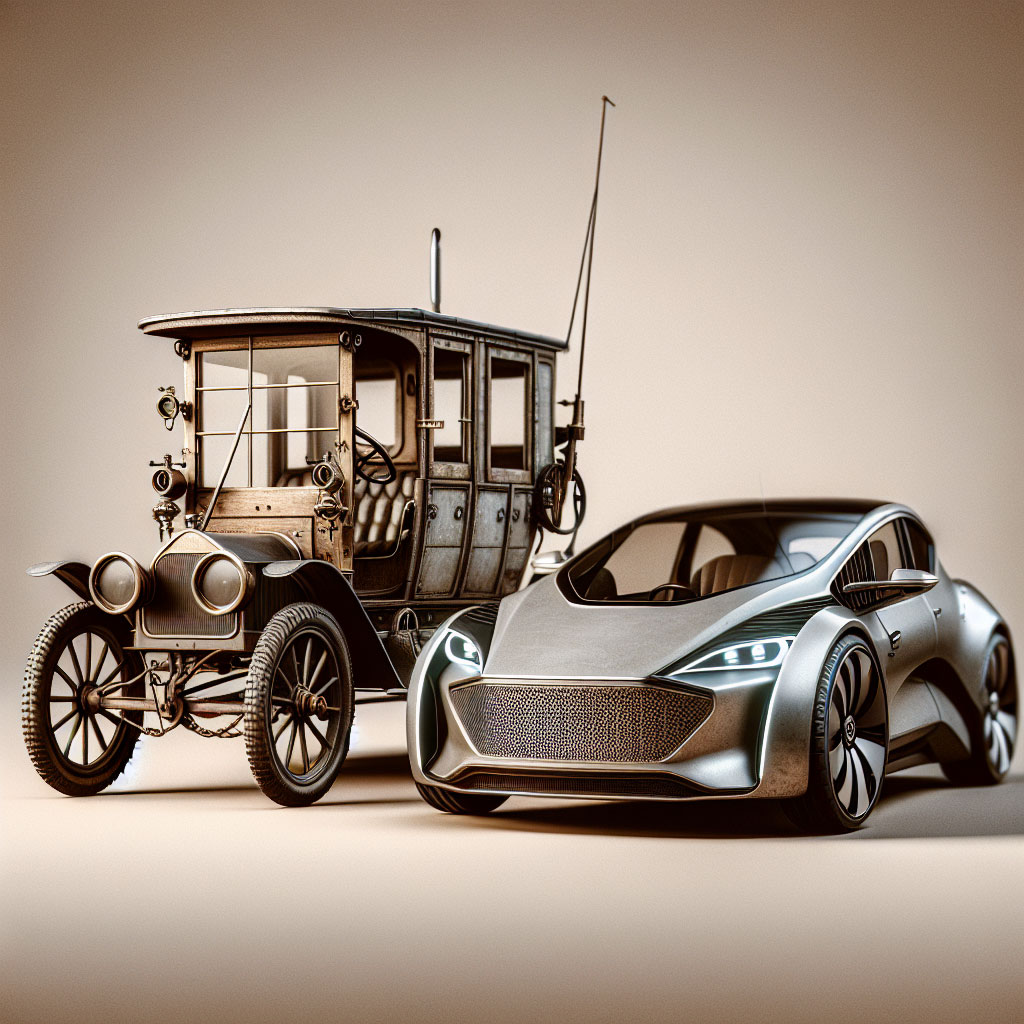
Early Innovations in Electric Vehicles
The history of electric vehicles can be traced back to the early 19th century when inventors began to experiment with electric power. In 1828, Hungarian engineer Ányos Jedlik created a small-scale model of a vehicle powered by a simple electric motor. Just a few years later, in 1839, the first full-scale electric vehicle was developed by Scottish inventor Robert Anderson. Despite these early innovations, the practicality and popularity of electric vehicles were still limited due to the lack of efficient battery technology.
The Rise and Fall of Electric Vehicles
In the late 19th and early 20th centuries, electric vehicles gained traction, especially in urban areas. They were quiet, could be started with a simple switch, and did not require the manual effort of cranking a gasoline car. In fact, by the early 1900s, electric vehicles comprised around a third of the cars on American roads. Prominent manufacturers like Baker Motor Vehicle Company and Detroit Electric produced vehicles that were popular with the wealthy and were often seen as luxurious alternatives to their noisy gasoline counterparts.
However, a combination of factors led to a decline in the popularity of electric vehicles. The introduction of mass production techniques by Henry Ford in 1913 made gasoline-powered vehicles cheaper and more accessible to the average consumer. Additionally, the discovery of Texas crude oil made gasoline readily available, further fueling the dominance of internal combustion engines.
The Comeback of Electric Vehicles
Despite their decline, the potential of electric vehicles never completely faded. The 1970s oil crisis rekindled interest in EVs, as fuel prices skyrocketed and concerns over dependence on oil grew. During this period, several companies experimented with electric vehicle prototypes, but significant barriers in battery technology hampered widespread adoption.
The modern era of electric vehicles began in the late 1990s. In 1996, General Motors released the EV1, an electric car designed for lease in California. Despite its popularity among consumers, GM decided to cease production, leading to public outcry and conspiracy theories about the reasons for the decision. The film “Who Killed the Electric Car?” (2006) highlighted the challenges faced by electric vehicles during this period, suggesting that the automotive industry and oil companies conspired to suppress EV technology.
Technological Advances and Emerging Trends
The 21st century has seen significant advancements in electric vehicle technology, driven largely by improvements in battery design, charging infrastructure, and increased environmental awareness. Lithium-ion batteries, developed in the 1980s and refined for use in consumer electronics, eventually became the gold standard for electric vehicles due to their high energy density and longevity. Companies like Tesla, Nissan, and Chevrolet led the charge, producing popular models that demonstrated the feasibility and appeal of electric vehicles. Tesla’s Model S, launched in 2012, shattered preconceived notions about electric cars by offering an extraordinary range and performance, contributing to a shift in consumer perception.
The Role of Government and Policy
Governments around the world have played a critical role in promoting the adoption of electric vehicles. Incentives such as tax credits, rebates, and grants have been implemented to encourage consumers to make the switch to electric. Additionally, many countries have set ambitious targets for reducing greenhouse gas emissions, further fostering the EV market. For instance, the European Union aims to have a significant portion of its vehicles be zero-emission by 2030, while China has quickly become the largest market for electric vehicles.
The Future of Electric Vehicles
As we look ahead, the future of electric vehicles appears bright. Innovations in solid-state batteries, autonomous driving technology, and sustainable materials promise to enhance the electric vehicle experience further. With the rise of electric vehicles, we are not just witnessing a shift in transportation; we are also seeing a transition towards sustainable energy solutions, as many EVs are powered by renewable sources. The shift from fossil fuels to electric energy is not just a trend, but a necessary evolution for the planet.
Conclusion
The untold history of electric vehicles is a testament to innovation, perseverance, and the ever-changing landscape of transportation. From its early days in the 19th century to its current resurgence, the journey of electric vehicles reflects not just technological advancements but also societal shifts towards sustainability. As we move forward, it is crucial to recognize the lessons of the past while embracing the opportunities of the future, ensuring that electric vehicles play a pivotal role in creating a cleaner and more efficient world.
FAQs
1. What are the main advantages of electric vehicles?
Electric vehicles offer several advantages such as lower operational costs, reduced greenhouse gas emissions, and decreased reliance on fossil fuels. They also tend to have fewer moving parts than gasoline vehicles, leading to lower maintenance costs.
2. What challenges do electric vehicles still face?
Despite recent advancements, challenges include the limited driving range of many electric vehicles, the need for widespread charging infrastructure, and the environmental impact of battery production and disposal.
3. Are electric vehicles environmentally friendly?
Electric vehicles can significantly reduce greenhouse gas emissions, especially when charged using renewable energy sources. However, the overall environmental impact also depends on battery production processes and the source of electricity used for charging.
4. How does charging an electric vehicle work?
Electric vehicles can be charged at home using a standard outlet or at dedicated charging stations. There are different charging levels, from Level 1 (standard home outlet) to Level 3 (fast charging), which can charge a vehicle’s battery in varying times depending on the battery size and technology.
EV Evolution: Australia’s Premier AI-Driven EV Community
EV Evolution is the leading online platform dedicated to Australian electric vehicle owners and enthusiasts. We foster a vibrant community, delivering essential EV news and insights, and enhancing user engagement through our innovative, AI-powered chatbot for dynamic discussions. Our mission is to empower Australian electric vehicle owners and enthusiasts by fostering a vibrant, AI-driven online community that connects, informs, and advances the nation’s electric vehicle landscape.




 and then
and then 